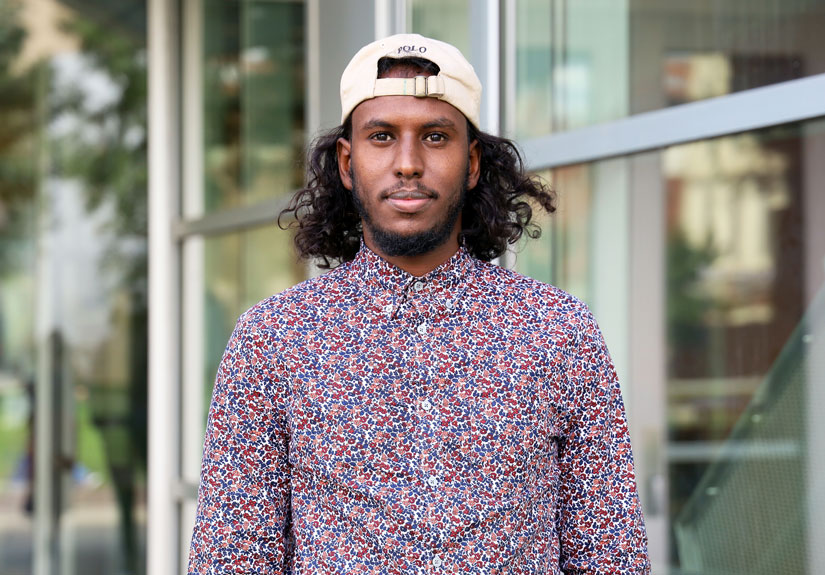Public Health Buckeyes: Sharmake Diriye
Master’s student driven by love for community, desire to make change

Meet Sharmake Diriye, a second-year MPH student in epidemiology, who combines his love for the Columbus-based Somali community he grew up in with a drive to diminish systemic barriers and improve health outcomes for all.
Question and Answer
Why did you decide to pursue public health at Ohio State?
The ineffective public health policies I saw as child helped me understand the role of the environment, community and socioeconomic factors in the etiology of disease. The perpetual cycle of unequal access to health care and a system that undermines minorities has only given me the choice to play my part in diminishing systematic barriers to health.
Can you tell us about the nonprofit organization you founded?
Reviving the Ummah’s Heritage, or RUH, focuses on empowering young adults to pursue higher education, but more importantly, the focus of the organization is to implement preventive strategies to reduce mental health challenges and drug addiction.
A few friends and I started this organization during the COVID-19 pandemic when the use of illicit drugs skyrocketed in our community. It’s a taboo to talk about drugs and mental health in our community, as both topics are hugely stigmatized. The dialogue in the beginning was uncomfortable, but we have taken huge leaps in combating substance abuse and, more importantly, openly talking about these pervasive issues in our community. In recent months we have focused more on positive youth development by providing scholarships to recent high school graduates and offering mentorship programs to first generation college students.
How does your passion for preserving cultural heritage intersect with your interest in public health?
Delivering care to people who come from all of walks of life is, to me, one the biggest challenges in public health. Coming from a diverse background and being able to communicate in multiple languages, I believe my passion allows me to personalize access in different cultural contexts. It is of a paramount importance for public health practitioners to critically understand cultural and linguistic differences to respect the wide diverse beliefs and values of the patients they interact with.
You worked as a COVID-19 contact tracer for the university last year. What was that experience like?
I had a positive experience working as contact tracer because I learned new skills and, more importantly, I learned the importance of teamwork. Working with faculty from different departments, communicating to input data and conducting interviews to slow the spread of the virus was a way of giving back to my Buckeye community. It reinforced my desire to pursue a career in public health.
What are your goals after receiving your degree?
My biggest goal is to give back to community and benefit them with what I learn. I plan to continue my education and apply to PhD programs this December. The need for public health professionals and clinicians in underserved communities is important, so I will take a role as a prevention specialist and community health educator after I complete my master’s degree in May.
I am also keen on working abroad as infectious disease specialist. I see myself working with the United Nations or independently giving back to my motherland. Tackling health disparity is a priority for me wherever I find myself in the coming years.
What advice would you give to students considering a degree in public health?
Ask yourself: ‘Why are you choosing this career path? What do you want to get out of it when you graduate?’ If you want a versatile degree that allows you to make an impact, a public health degree can take you far in life. Do your research and find personal reasons for why you want to do public health. All things are achievable when you have a connection with them, and education is no different.
About The Ohio State University College of Public Health
The Ohio State University College of Public Health is a leader in educating students, creating new knowledge through research, and improving the livelihoods and well-being of people in Ohio and beyond. The College's divisions include biostatistics, environmental health sciences, epidemiology, health behavior and health promotion, and health services management and policy. It is ranked 22nd among all colleges and programs of public health in the nation, and first in Ohio, by U.S. News and World Report. Its specialty programs are also considered among the best in the country. The MHA program is ranked 5th and the health policy and management specialty is ranked 21st.